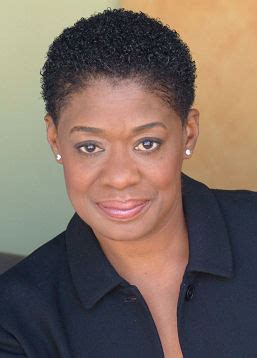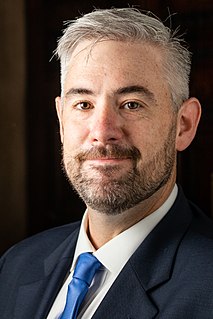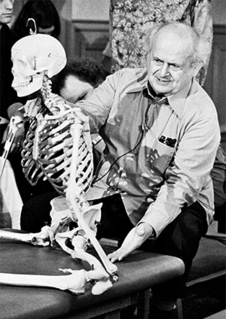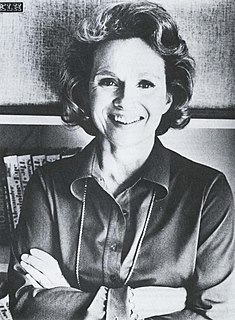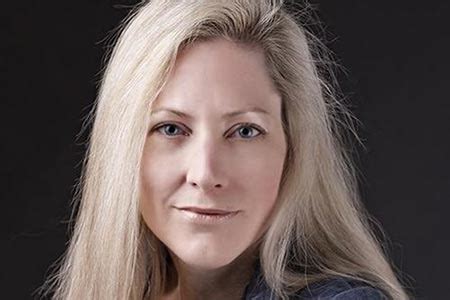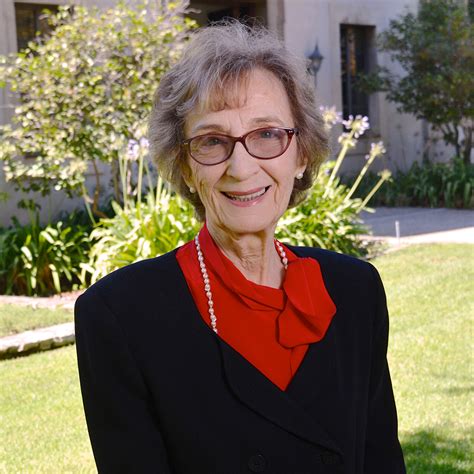Top 1155 Relatively Quotes & Sayings - Page 18
Explore popular Relatively quotes.
Last updated on December 4, 2024.
Do you and I believe him (Christ) enough to obey him and to follow him wherever he leads, even when the crowds in our culture - and maybe in our churches - turn the other way?...For the sake of an increasingly marginalized and relatively ineffective church in our culture, I want to risk it all. For the sake of my life, my family, and the people who surround me, I want to risk it all.
Every time you have an opportunity of opening a school, its fee and funding is really relatively small in comparison with the big expenditure, which is basically quote unquote defense. I think if there were fees, progress could be very much faster. But for that we need not only the government in different countries to understand it but the society to put pressure on it, the parents to understand that their desire to have their children educated can actually be realized, and it could make a dramatic difference.
Consequential strangers help us stretch beyond the relatively rigid boxes that the people who have known us the longest - our family and close friends - often put us into. Through interacting with people who do not know us as well, we are more free to experiment with ourselves, and less likely to have our new behaviors and roles reflected back to us by people who object, 'But that's not like you!'
If you would understand this secret, you must first understand the distinction between training an animal and educating one. Trained animals are relatively easy to turn out. All that is required is a book of instructions, a certain amount of bluff and bluster, something to use for threatening and punishing purposes, and of course the animal. Educating an animal, on the other hand, demands keen intelligence, integrity, imagination, and the gentle touch, mentally, vocally, and physically.
I'm excited about silver because as I write, it's relatively inexpensive. I'm also excited about silver because -- unlike real estate, which can require a lot of money, some finance skills, lots of due diligence and property management skills to do well -- silver is affordable to the masses, and management skills are minimum.
I have been in relatively high-risk businesses all of my adult life. Few of the others, however, had the possibility of direct gains in knowledge which this one had. I have confidence in the equipment, the planning, the training. I suspect that on a risk-gain ratio, this project would compare very, very favorably with those to which I've been accustomed on the past 20 years.
It's a social contract we make. We're willing to give up certain things. We give you the right to tax us. We give you the right to lock us up. We give you the right to put us on surveillance, search our homes, whatever and, in exchange, we get a functioning society that keeps us relatively safe, and that's the tradeoff we make.
By the end of 2008, clearly, the al Qaeda and Sunni insurgency had been relatively stabilized. And in the al Qaeda's mind, they were defeated. They actually said that in many of their transmissions that we were able to pick up. And the Shia militia, largely those trained by the Iranians in Basra and also in Sadr City, had been defeated.
For the little that one has reflected on the origin of our knowledge, it is easy to perceive that we can acquire it only by means of comparison. That which is absolutely incomparable is wholly incomprehensible. God is the only example that we could give here. He cannot be comprehended, because he cannot be compared. But all which is susceptible of comparison, everything that we can perceive by different aspects, all that we can consider relatively, can always be judged according to our knowledge.
Without freedom there will be no firearms among the people; without firearms among the people there will not long be freedom. Certainly there are examples of countries where the people remain relatively free after the people have been disarmed, but there are no examples of a totalitarian state being created or existing where the people have personal arms.
I'm still relatively unknown, and as an actor you just want to work. So, if you get a job, it's hard to turn it down, even if it's something you don't believe is great, you still want to put your stamp on it. And you really believe that by saying yes and bringing your best, you can help it out a little, or improve on something. But the hope is that you can get to a position where you can start to shape your career.
It occurs to me that there's been a relatively recent tendency in the media to see prostitutes as victims and johns as exploiters. I don't think most prostitutes see themselves as victims or see their clients as exploiters, but that way of seeing prostitutes and johns is pretty common now outside of sex-work circles, and it's more shameful to be the exploiter than the exploited.
The first and probably most fundamental aspect of this crisis is that we are now close to the commodification of everything. That is, historical capitalism is in crisis precisely because, in pursuing the endless accumulation of capital, it is beginning to approximate that state of being Adam Smith asserted was 'natural' to man but which has never historically existed. The 'propensity [of humanity] to truck, barter, and exchange one thing for another' has entered into domains and zones previously untouched, and the pressure to expand commodification is relatively unchecked.
There's a disciplined erotic component to it, so that the height of sexual contact is the embrace, the modest touch, a relatively chaste kiss. An important passage from the surviving 1942 diary (one I quote in the book) relates this mode of sexual expression to his own life. Mann had returned to his diary for 1927 (one of those he burned) and to his parting from the young man, Klaus Heuser, whom the family had met on holiday and invited to Munich.
There is also a particular area of sleep called slow-wave sleep. I immediately liked this idea. It turns out this part of sleep is where the brain basically gets into step with itself and gets into this one single phase of these relatively slow brain waves - around 10 Hz or so - and the whole brain 'fires all at once'. This is a brilliant bit of sleep where we consolidate memory and learning, and memory is one of my obsessions really.
We got a wonderful present from Stalin and Hitler that they never meant to give us. We were immune for 60 years or so to aggression, racism and militarism. They made us partly immune to these things. Now it appears this Stalin-Hitler present has reached its expiration date. We were spoiled by this. So maybe we are just emerging out of a relatively golden age.
Like Nietzsche's own writings on education, most of mine were relatively youthful ones. Both were inspired by a critical animus against prevailing trends in education: in Nietzsche's case, the production either of 'useless', dry-as-dust scholars or people 'useful' for the needs of an expanding industrial economy; in my case, a similar subjection of education to economic imperatives, but also to ideological obsessions, notably with promoting 'equality'.
Pathology is a relatively easy thing to discuss, health is very difficult. This, of course, is one of the reasons why there is such a thing as the sacred, and why the sacred is difficult to talk about, because the sacred is peculiarly related to the healthy. One does not like to disturb the sacred, for in general, to talk about something changes it, and perhaps will turn it into a pathology.
Common sense is not something rigid and stationary, but is in continuous transformation, becoming enriched with scientific notions and philosophical opinions that have entered into common circulation. 'Common sense' is the folklore of philosophy and always stands midway between folklore proper (folklore as it is normally understood) and the philosophy, science, and economics of the scientists. Common sense creates the folklore of the future, a relatively rigidified phase of popular knowledge in a given time and place.
Yes, over the centuries economic progress has reduced some gross disparities - modern Americans are relatively unlikely to simply starve to death (though it can happen), so in that sense the gap between rich and poor has narrowed. But the question isn't whether society is, in some sense, more equal than it was in 1900. It's whether it is radically more unequal than it was in 1970. And of course it is.
I've always felt that the writing I responded to most - the novels and stories that compelled me, that felt like they described the world I live in, with all of its subjectivity, irrationality, and paradox, were those which made free use of myths and symbols, fantastic occurences, florid metaphors, linguistic experiments, etcetera - to depict the experiences of relatively 'realistic' characters - on the level of their emotions and psychology, rather than in terms of what kinds of lives they led or what kind of events they experience.
I had success as an actor relatively early. When I was 22, I got nominated for an Academy Award for The Last Picture Show, so that road, you know, had the least resistance. I was doing my music all that time, but it's pretty hard to turn down these great movie offers. And my father counseled me; he said, "You know, one of the wonderful things about acting is that you can incorporate all of your interests into the different parts you play." I'm glad I listened to the old man, because that's the way it turned out.
Although I have no objection to accepting the existence of relatively constant psychic contents that survive personal ego, it must always be born in mind that we have no way of knowing what these contents are actually like "as such." All we can observe is their effect on other living people, whose spiritual level and whose personal unconscious crucially influence the way these contents actually manifest themselves.
One of the characteristics of love relationships that flower is a relatively high degree of mutual self-disclosure - a willingness to let our partner enter into the interior of our private world and a genuine interest in the private world of that partner. Couples in love tend to show more of themselves to each other than to any other person.
I was leaving the Belfast court, where I had been called to answer a very flimsy charge, later dismissed. You're relatively safe in such areas in the Irish community, but to go to downtown Belfast for me is dangerous. My appearance in court had been well advertised by the police. I think it was too much of a coincidence that the people who shot me were just passing by.
My general theory since 1971 has been that the word is literally a virus, and that it has not been recognized as such because it has achieved a state of relatively stable symbiosis with its human host; that is to say, the word virus (the other Half) has established itself so firmly as an accepted part of the human organism that it can now sneer at gangster viruses like smallpox and turn them in to the Pasteur Institute.
We need a barn or one of those storage areas for the Broken vehicles." "A garage?" He gave her a short nod. "A private, relatively remote location, with thick walls to dampen the sound and preferably a sturdy door I could bolt from the inside, keeping your grandmother, your brothers, and all other painfully annoying spectators out..." Rose began to laugh. A make-out bunker... "I'm glad you find our dilemma hilarious.
The tragedy of young-earth creationism is that it takes a relatively recent and extreme view of Genesis, applies to it an unjustified scientific gloss, and then asks sincere and well-meaning seekers to swallow this whole, despite the massive discordance with decades of scientific evidence from multiple disciplines. Is it any wonder that many sadly turn away from faith concluding that they cannot believe in a God who asks for an abandonment of logic and reason?
The fact is that relatively few photographers ever master their medium. Instead they allow the medium to master them and go on an endless squirrel cage chase from new lens to new paper to new developer to new gadget, never staying with one piece of equipment long enough to learn its full capacities, becoming lost in a maze of technical information that is of little or no use since they don't know what to do with it.
I think it's a good thing that we can have relatively non-partisan political conversations because I don't think that my premier necessarily should agree with everything the federal NDP says. I don't think she should disagree with everything the federal Conservatives say. I think that Albertans and Canadians as a whole, as I always say, are looking for pragmatic politicians with pragmatic solutions to their problems, and they want the best ideas to move forward, regardless of who has that idea.
In The Federalist, James Madison called the rage for equality 'a wicked project.' People differ and rewards differ-that's the essence of both liberty and justice. No nation that rewards effort, talent, inventiveness and luck can even pretend to cherish equal outcomes. In an inventive and dynamic society, equal (even relatively equal) incomes can be achieved only by abandoning liberty for tyranny.
The first scene I shot on The Originals was the one with Phoebe, Charles (Michael Davis), and Andy Lees when we are plotting our plan and surveying the map and plotting our grand "break in." It was a relatively light scene which was nice because I was able to warm up a bit and get comfortable with being around the new crew. They were all very kind and helpful and I felt pretty at home after a few takes.
[T]he Swiss people are the best practitioners of the ideals of non-aggression. The Swiss national government posts are parttime positions. Most decisions are made at the canton (state) level. Swiss per capita income is the highest in the world, showing that non-aggression pays. How did the Swiss come to adopt a relatively non-aggressive constitution in an aggressive world? In the mid-1800s, they imitated our constitution and stuck with it!
Songs give you incredible opportunity to convey a tremendous amount in a relatively short period of time. The first thing that John Powell, our composer, says is, "Is the song engaging you to tap your toe?" If you're not tapping your toe, it doesn't matter what you're doing in the song, it's not going to work. But, if you can get the audience to be engaged by the song, then it gives you the opportunity to accomplish so much, in a very concise way.
I've had a relatively charmed life. I loved to be out in the city. New York was my town. I've had people come up to me and say, 'You're a great New Yorker. You've given your time and money to so many New York charities. You're a great supporter of the arts. I like some of your movies - and some of your movies suck, actually.'
I don't really think in terms of the future of literature. I think literature will be around "forever" - but in a relatively niche way, like jazz and poetry, although probably more widely consumed than jazz and poetry since it's fundamentally a narrative form. And I think that's important and places like Word Riot and 'The New York Tyrant' and 'n+1' will be responsible for keeping it alive.
The greatest intensification of the horrors of war is a direct result of the democratisation of the State. So long as the army was a professional unit, the specialist function of a limited number of men, war remained a relatively harmless contest for power. But once it became everyman's duty to defend his home (or his political “rights”) warfare was free to range wherever that home might be, and to attack every form of life and property associated with that home.
I was very much a tough New York street kid. I went to a school where you had to learn how to get along with everybody or fight with everybody, and I did my fair share of both. But you have to learn how to get along. I did an awful lot of fighting. I was tough, but I'm also relatively small, so I learned very early on to use my mind.
Art is for the elite because it has a very high price-point of entry. And when one is in that social strata, they look down at illustrators because they just draw things directly for a few hundred dollars and that's seen as being a bit grubby. Galleries allow artists to stay relatively divorced from the financial aspects of their trade. I am lucky because I do fine art, and that is half of my living. And then illustration provides the other half.
The rich plankton of pop heroes and pop villains on which we Americans are accustomed to feed, the daily media soup of sports figures, ax murderers, politicians, and rock singers, the ever-running river of celebs, heavies, and oddballs that we use to spice up our own relatively humdrum lives has of late become a very watery gruel. Where have all the good guys and bad guys gone? Why does everyone out there look so gray?
Clipper took a relatively simple problem, encryption between two phones, and turned it into a much more complex problem, encryption between two phones but that can be decrypted by the government under certain conditions and, by making the problem that complicated, that made it very easy for subtle flaws to slip by unnoticed. I think it demonstrated that this problem is not just a tough public policy problem, but it's also a tough technical problem.
I might take from the current political chaos a desire to somehow reflect its essential qualities in a story - the blatant lies that get accepted with repetition; the way mass media seems to be agitating people en masse; the way, particularly, that a relatively lucky and affluent and privileged population can be undone by a certain spoiled quality; that feeling when two decent people violently disagree, because they are arguing from two non-intersecting data sets - well, the list goes on.
Unlike most wars, which make rotten fiction in themselves - all plot and no characters, or made-up characters - Vietnam seems to be the perfect mix: the characters make the war, and the war unmakes the characters. The gods, fates, furies had a relatively small hand in it. The mess was man-made, a synthetic, by think tank out of briefing session.
When we stop trying to control events, they fall into a natural order, an order that works. We're at rest while a power much greater than our own takes over, and it does a much better job than we could have done. We learn to trust that the power that holds galaxies together can handle the circumstances of our relatively little lives.
My importance to the world is relatively small. On the other hand, my importance to myself is tremendous. I am all I have to work with, to play with, to suffer and to enjoy. It is not the eyes of others that I am wary of, but of my own. I do not intend to let myself down more than I can possibly help, and I find that the fewer illusions I have about myself or the world around me, the better company I am for myself.
Here's a news flash--writers are selfish people. Truth is, creative types like me are driven by one impulse--to make up a world in which we get to control everything and everyone. We decide who enters and who exits, what the weather will be, who will hook up with whom, who will win and who will lose. It makes us feel powerful and, in all honesty, has relatively little to do with thinking about what will make anyone else happy.
South Korea from a country that had relatively little primary education became close to universal literacy in the course of 25, 30 years, in a way trying to replicate what Japan had done earlier. They were learning to some extent from the Japanese experience too. So I think, in a sense, the East Asians were following a path, which all other countries including South Asia could follow but chose not too.
A large part of our attitude toward things is conditioned by opinions and emotions which we unconsciously absorb as children from our environment. In other words, it is tradition—besides inherited aptitudes and qualities—which makes us what we are. We but rarely reflect how relatively small as compared with the powerful influence of tradition is the influence of our conscious thought upon our conduct and convictions.
I'm not a grunter, I'm relatively quiet. There's a little bit of breathing out. Some people get really loud! There's a little bit of psyching up sometimes, if you're going for a really heavy weight you might make a little noise, but when lifting, I try and keep it quite quiet - I'm not a fan of male noise in that way to be totally honest. I think when girls do it it's not as bad, but when guys do it it's just like, 'Come on mate, hold it in!'.
Monotheistic religions in the West have tended to conflate having a general orientation in life, having a specific theory of the world, having a sense of the positive meaningfulness of one's existence, and having a fixed set of rules for behavior, but these elements are in principle separable. ... The "metaphysical need," ... both Marx and Nietzsche held, is a historical phenomenon that arises under determinate circumstances, and could be expected to disappear under other circumstances that we could relatively easily envisage.
I decided that we'd have to take our chances with the law and get the hell out of Baltimore. I thought of seeking asylum in Canada or Australia or England, but I didn't want to leave the United States, because for better or worse I'm an American, and this is my land; so I decided to fight it out on home ground, and finally we hit upon Hawaii, because of the liberal atmosphere created by its racial admixture, and because of its relatively large population of Buddhists, who are largely nontheistic.
Though now we think of fairy tales as stories intended for very young children, this is a relatively modern idea. In the oral tradition, magical stories were enjoyed by listeners young and old alike, while literary fairy tales (including most of the tales that are best known today) were published primarily for adult readers until the 19th century.
Hot groups have members who are task-obsessed and full of passion. They share a style which is "intense, sharply focused, and full bore. Members feel engaged in an important, even vital and personally ennobling mission; their task dominates all other considerations; and although such intense teams tend to remain intact only for a relatively short period of time, that time is remembered nostalgically and in considerable detail by its members.
As a young woman working in journalism, I assumed harassment and discrimination came with the territory and that you just had to get on with the job. As I rose to senior positions, it took me awhile to realise that just because I'd survived relatively unscathed didn't mean the younger women joining the profession would do so, and it isn't until you hit a certain age that the reality of ageism - which is much more acute for women - kicks in.
I'm happy to say that I have not been fired off a film. The score is usually the last thing to be done. So a lot lands on the scores shoulders. A lot of problems that seem to have nothing to do with the music gets blamed on the music , because it's relatively cheap to change, where as a reshoot etc is not. Music is often expected to help or fix bad cuts, bad acting, bad filming, bad timing, you name it.
You've probably heard the term, 'red flag warning.' That means there are extreme conditions. Low humidity, high temperatures. The fuels are extremely dry and volatile. We classify those in East Tennessee as 'fire days' so if your fire class day is a 1, it's relatively low. A class 5 day would be an extremely high danger day. A day like Sunday would be a 4 or a 5.
I suspect that relatively few people will sit down and read 1250 pages [ of The Enduring Authority of the Christian Scriptures.] all the way through from cover to cover. There may be some, but not everybody. But there are many, many, many different Christian, theological, pastoral, specialisms that are covered by one section or another of the book and this will become, therefore, a resource volume for many people.
I find it relatively easy to keep my clothes on because I don't really feel like taking them off. It's not an urge I have. For me, 'risky' is revealing what really happened in my life through music. Risky is writing confessional songs and telling the true story about a person with enough details so everyone knows who that person is. That's putting myself out there, maybe even more than taking my shirt off.



